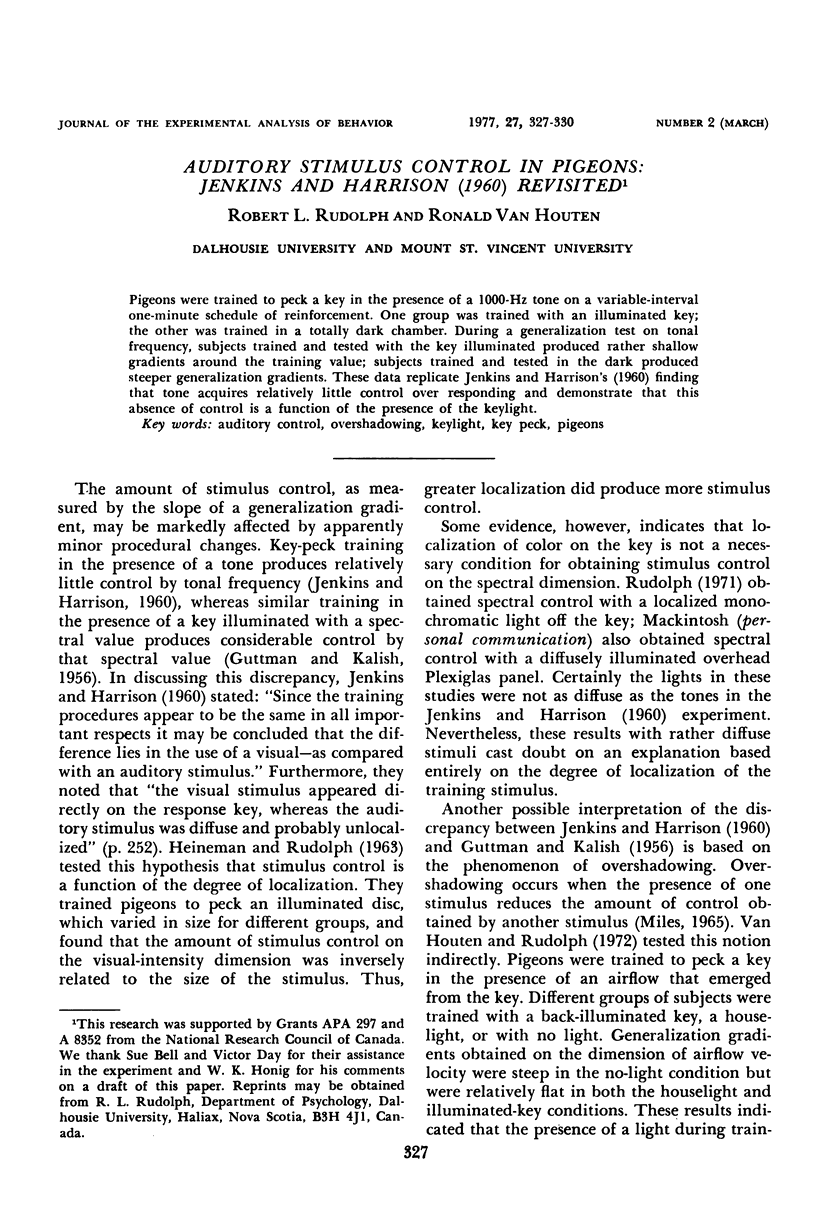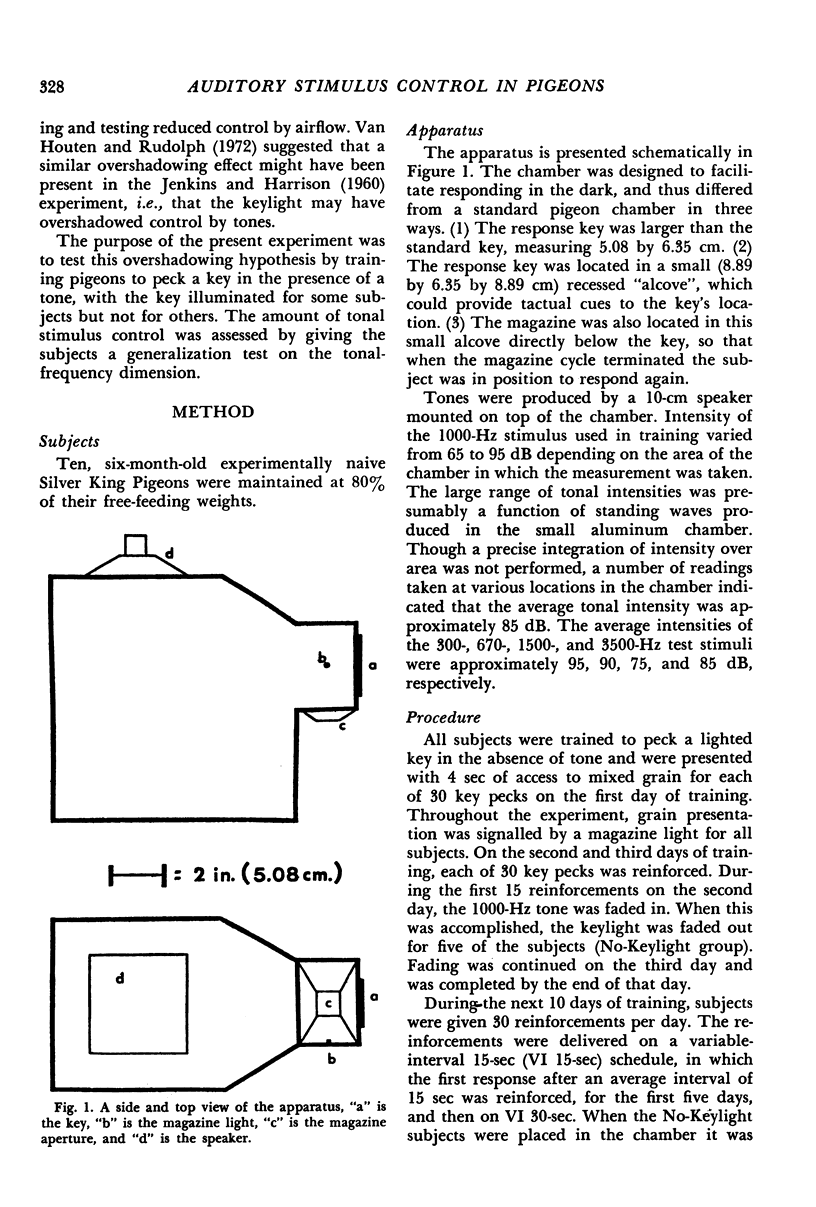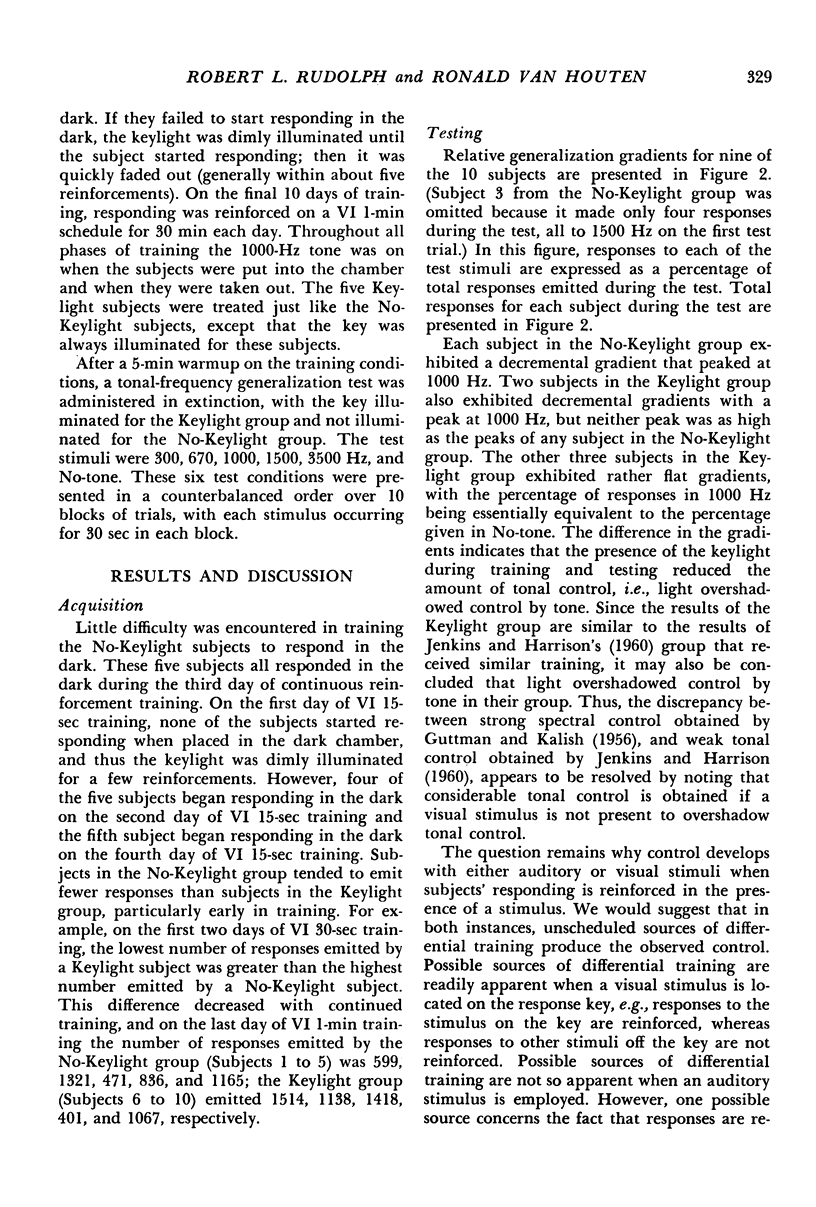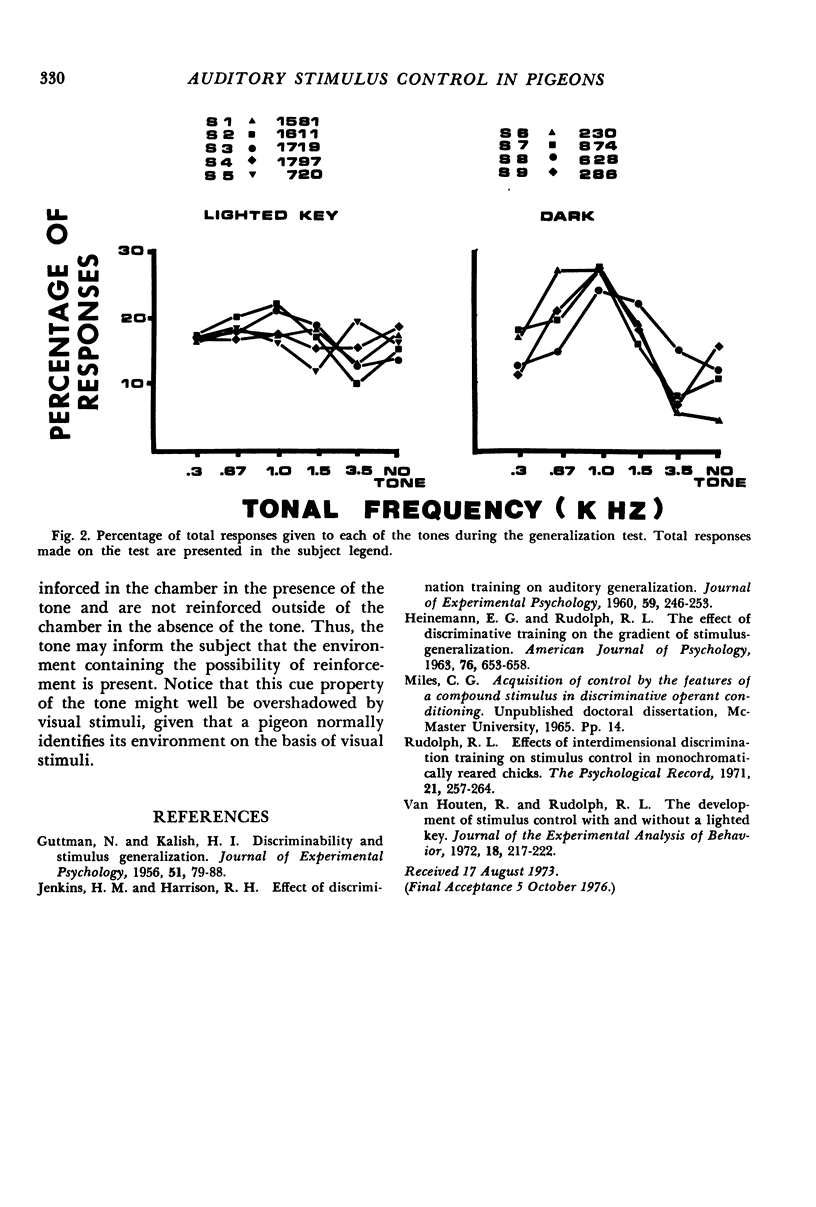Abstract
Pigeons were trained to peck a key in the presence of a 1000-Hz tone on a variable-interval one-minute schedule of reinforcement. One group was trained with an illuminated key; the other was trained in a totally dark chamber. During a generalization test on tonal frequency, subjects trained and tested with the key illuminated produced rather shallow gradients around the training value; subjects trained and tested in the dark produced steeper generalization gradients. These data replicate Jenkins and Harrison's (1960) finding that tone acquires relatively little control over responding and demonstrate that this absence of control is a function of the presence of the keylight.
Keywords: auditory control, overshadowing, keylight, key peck, pigeons
Full text
PDF



Selected References
These references are in PubMed. This may not be the complete list of references from this article.
- GUTTMAN N., KALISH H. I. Discriminability and stimulus generalization. J Exp Psychol. 1956 Jan;51(1):79–88. doi: 10.1037/h0046219. [DOI] [PubMed] [Google Scholar]
- HEINEMANN E. G., RUDOLPH R. L. THE EFFECT OF DISCRIMINATIVE TRAINING ON THE GRADIENT OF STIMULUS-GENERALIZATION. Am J Psychol. 1963 Dec;76:653–658. [PubMed] [Google Scholar]
- JENKINS H. M., HARRISON R. H. Effect of discrimination training on auditory generalization. J Exp Psychol. 1960 Apr;59:246–253. doi: 10.1037/h0041661. [DOI] [PubMed] [Google Scholar]
- Van Houten R., Rudolph R. The development of stimulus control with and without a lighted key. J Exp Anal Behav. 1972 Sep;18(2):217–222. doi: 10.1901/jeab.1972.18-217. [DOI] [PMC free article] [PubMed] [Google Scholar]



